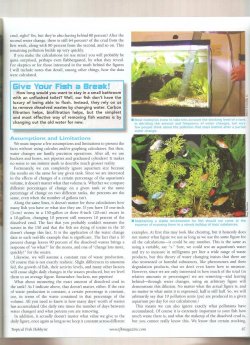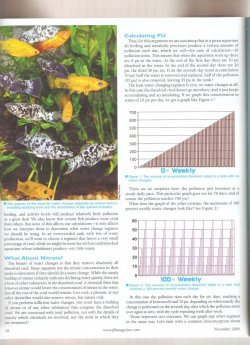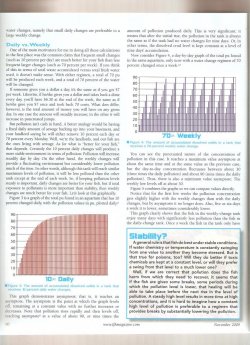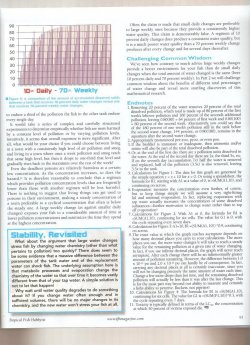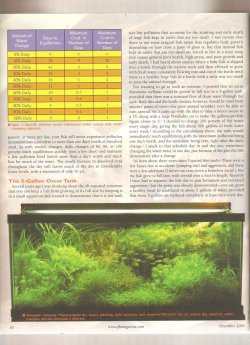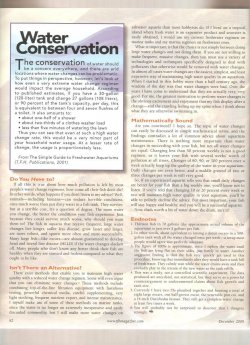Yes, thanks for your assessments and anecdotes. I have heard all of these assessments and anecdotes before. Your speaking to a life-long fish-keeper here- a discus keeper to be more exact. But, they are worth repeating for the new folk so the "rules live on into perpetuity" .I am not trying to be argumentative here, but there is some misunderstanding. It is certainly true that live plants, stocking density, etc will impact or have consequences or be variable factors on the biological system, but none of these can replace water changes.
Fish in their natural habitat are in "fresh" water with every respiration of their gills. This is not even remotely possible in an aquarium unless you have flow-through water which I doubt anyone on this forum has.
Live plants benefit, no doubt of that. But I recall one assessment that if you had six black neon tetras in a 55 gallon well planted aquarium, you would have the ratio of plants/fish that would negate water changes. Plants cannot compensate for lack of water changes.
UV is actually not beneficial in a freshwater system. For one thing, unless every drop of water in the aquarium passes through the UV before it returns to the aquarium--i.e., you would need the UV between two tanks with water passing from one through the UV to another--it is not going to do much. And this still does not replenish the water as "fresh" but merely makes it less beneficial in a sense.
There are substances accumulating in the water from fish that cannot be removed except by a water change. Fish release pheromones that others in the species read, and allomones that are read by other species. These accumulate quite densely in an aquarium, and they cause stress to fish when they are negative. The only way to remove them is with substantial frequent partial water changes.
The other point to keep in mind is that the more water you change the healthier the fish will be, always. Jack Wattley in his monthly discus column in TFH frequently mentioned water changes, and noted that some discus breeders change 95% of the water in the fry tanks two and even three times every day. This allows them to have more fry per tank, and the fry develop faster and are healthier. The point of my mentioning this is not to suggest overstocking tanks, but to illustrate the incredible benefit of water changes. Imagine providing these benefits to all one's fish? Less stressed fish means healthier fish, since stress is the direct cause of 95% of fish disease in an aquarium.
Fish do not become sick from clean water, only when it is not changed. And a 70% change once a week is far more beneficial than 10% changed every day, even though in the end the same "volume" has been changed over seven days. Regular substantial water changes are the most important and frankly crucial maintenance an aquarist can do for his fish.
Some of what you offer is just simply that- anecdotes. Rules that fish-keepers "live by" rather than scrutinize.
Water changes are indeed, important; but at the level ( volume you are suggesting across the board in all cases)? I have not seen any pertinent scientific studies done that establish that demonstrate in all cases and circumstances a 75% water change is best. This is more of a way for experienced fish-keepers to generalize "rules" to new fish-keepers. To an experienced fish-keeper- it sounds like nonsense.
Did I say Ive been raising discus for 18 years and none of what you suggested regarding water changes, hormones, etc is a surprise?
My UV filters are powerful and effective ---and my fish in the most densely populated tanks get the large, frequent water changes that you are suggesting all tanks need. So whats the worry? No stress needed here.
The worry seems to be the rainbow fish with their 30% water change. Lets take it down a notch; really, they are healthy juvenile fish that are getting adequately cared for by an experienced aquarist. If I start to see any detrimental after-effects from the volume of water changes Ill be certain to do an extra 20 gallons to reach the required forum quota.



